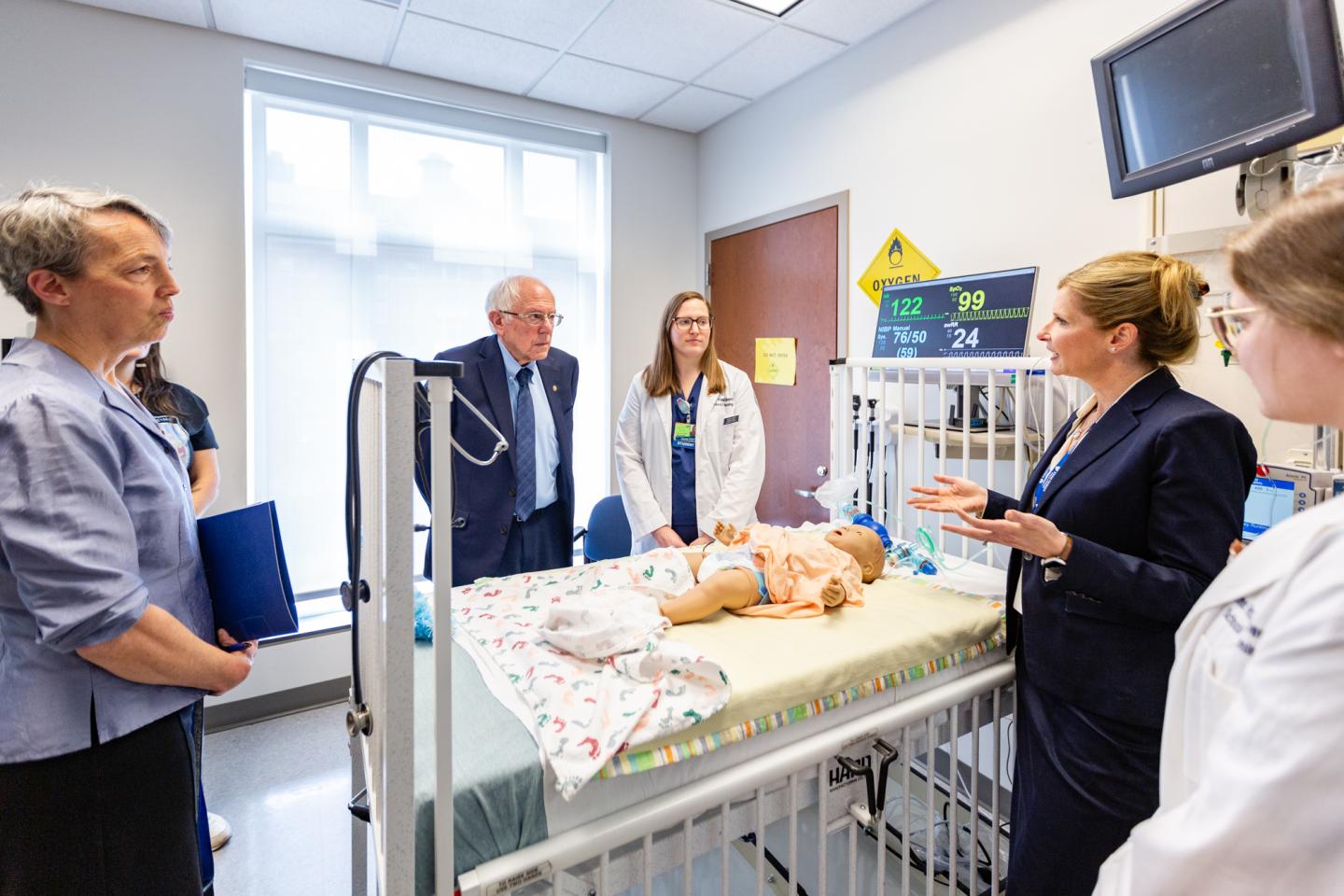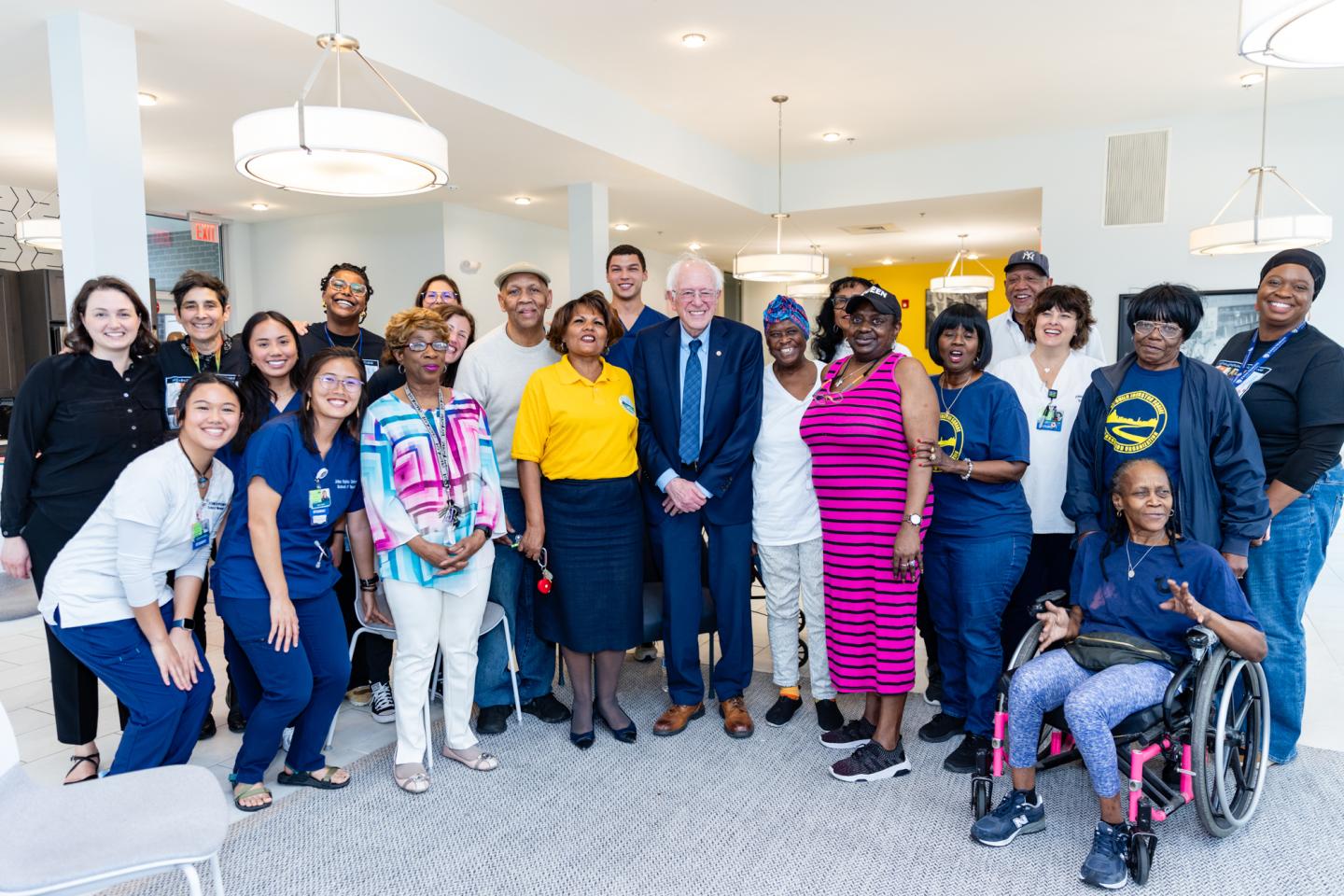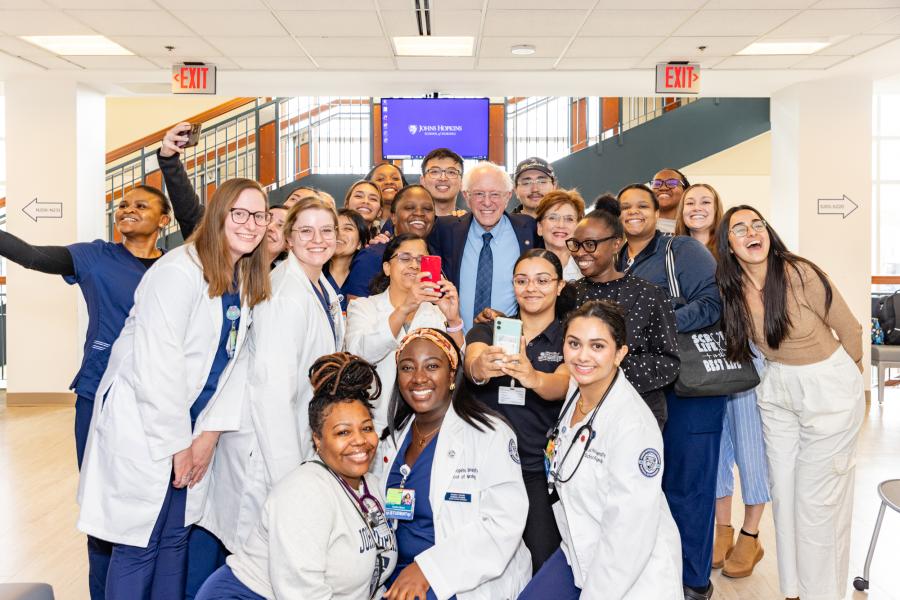U.S. Sen. Bernie Sanders and senior members of his staff visited the Johns Hopkins University School of Nursing in East Baltimore last week to discuss the future of nursing and nursing education, and to see some of the school's education, training, and community-centered health care endeavors in action.
Sanders met with School of Nursing Dean Sarah Szanton, Senior Health Policy Advisor Natalia Barolín, and others from across the school, including students and leaders from the school's Washington, D.C.-based Institute for Policy Solutions. Szanton and others emphasized that the nation is experiencing a workforce crisis that necessitates a shift in thinking and approach toward health and whole-person care.
"This visit was an opportunity to elevate how nurses are leading a shift in how we approach health and health care," Szanton said. "True redesign includes meeting people where they are to help individuals, families, and communities thrive; and not just access care once it's an emergency."

Image caption: U.S. Sen. Bernie Sanders visits a simulation teaching lab at the Johns Hopkins University School of Nursing.
Image credit: Daniel Martinez / Johns Hopkins University
Sanders and his team saw first-hand how the JHU School of Nursing is leading the way in preparing nurses for the future of health—providing community-based care training focused on health and well-being while also addressing acute care needs using advanced simulation and immersive, virtual-reality-powered training tools. They visited the nearby Johnston Square neighborhood, where the school is piloting the Neighborhood Nursing program, which aims to eliminate inequities by linking every resident with a nurse/community health worker team and focusing on well-being, prevention, and restoring optimal health when people get sick. The senator met with community members who had the opportunity to talk about the value of having a nurse and community health worker in their community to help remove barriers to their optimal health and well-being.
Sanders, a third-term senator from Vermont, chairs the Senate's committee on health, education, labor and pensions. Last year, he outlined a bold plan that would direct nearly $200 billion in new funding to the health care system, including $130 billion over five years for community health centers and $60 billion to grow the workforce, with increased funding to support health care providers practicing in underserved areas.

Image caption: Sanders met with residents of Baltimore's Johnston Square neighborhood to discuss nurse-led community-based approaches to health care.
Image credit: Daniel Martinez / Johns Hopkins University
Posted in Health








